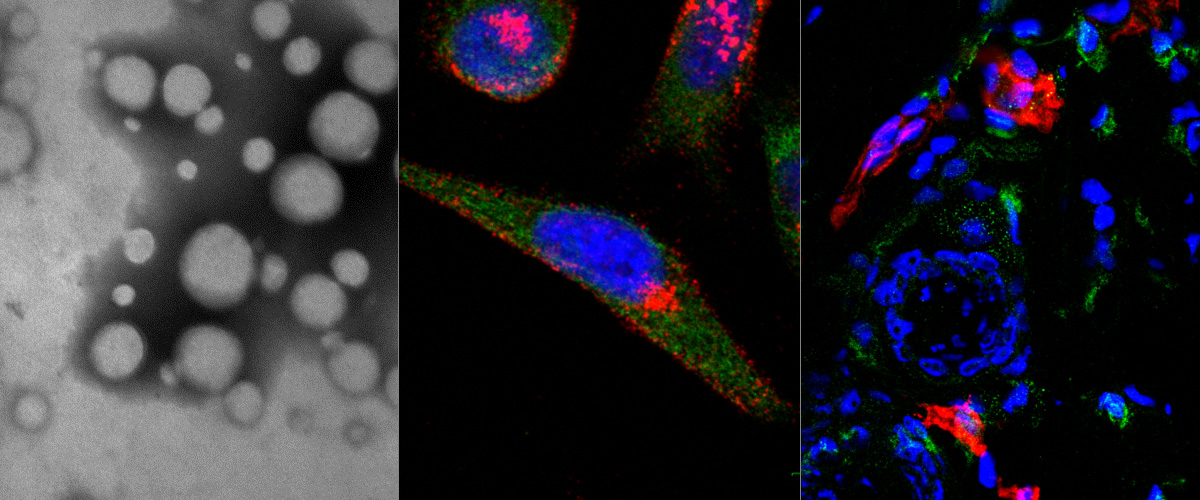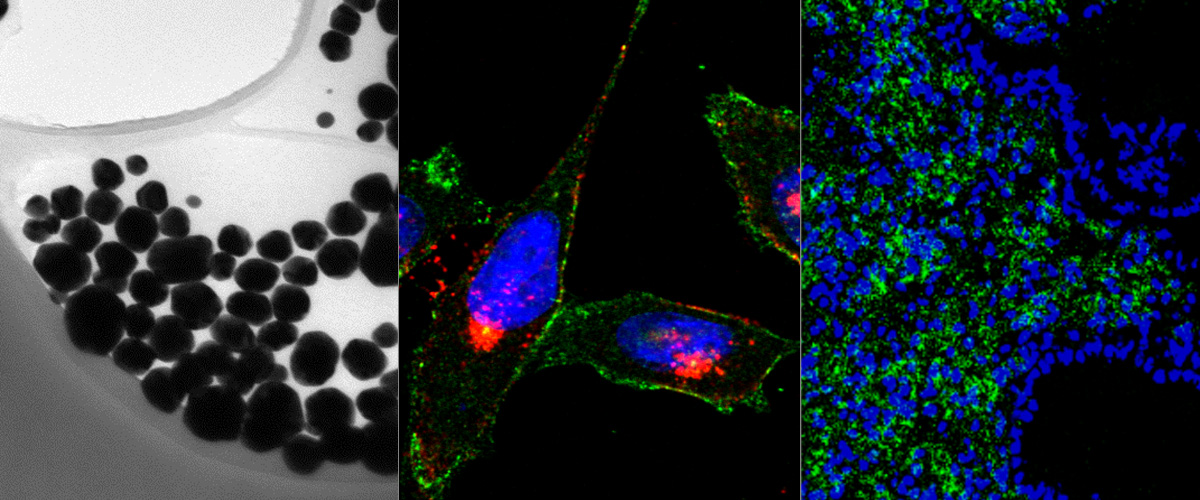We have designed new nanoparticles that detect small breast tumors using the clinically used medical imaging modality Positron Emission Tomography (PET).
The particles are polymeric vesicles (polymersomes) made from biocompatible components polyethyleneglycol (PEG) and polycaprolactone (PCL). We found that functionalization with a tumor penetrating peptide discovered in our group ("LinTT1") boosted the accumulation of the particles in the tumor to allow sensitive detection of breast tumors modeled in mice. The polymersomes used in the study are versatile carriers that can be loaded with chemotherapeutic agents to make the drugs more selective and decrease side effects.
This work was performed in collaboration with the group of Dr. Sergio Moya at the Center of Cooperative Investigation in Biomaterials (CIC BiomaGUNE) in San Sebastian (Spain) and group of Prof. Twan Lammers of RWTH Aachen University, Aachen (Germany).
Image caption:PET images taken 48hours after intravenous injection of untargeted polymersomes and LinTT1-targeted polymersomes. The location of the tumors is marked with red arrow and both tumors had the same volume. The detection limit of the tumors using PET images was significantly lowered when using LinTT1 guided polymersomes.
Link to the paper: https://doi.org/10.18632/oncotarget.24588





